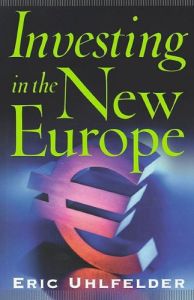Join getAbstract to access the summary!

Join getAbstract to access the summary!
Eric Uhlfelder
Investing in the New Europe
Bloomberg Press, 2001
What's inside?
Don’t be deceived by the sagging euro — Europe is a great investment.
Recommendation
Eric Uhlfelder’s book could be titled "Europe 101: An Introduction for Americans." European readers will not gain much by reading this work, which is filled with the very basic basics of Europe’s politics, economies and companies. But for Americans looking to diversify their newly constructed stock portfolios, it is a valuable resource, profiling the EU and the economic strengths and weaknesses of EU and non-EU countries. The book also profiles key companies, such as Nokia, SAP, Adecco and others, and discusses which individual stocks and mutual funds you should acquire. getAbstract recommends this interesting primer to Yankee readers, who might be surprised to learn how fast Ireland is growing, how much Austria’s fling with the far right cost the country and how a French utility firm is positioned to take over the world.
Summary
About the Author
Eric Uhlfelder has been covering international markets as a writer and analyst for more than 10 years. His work is featured in Business Week, Euromoney’s Global Investor, Individual Investor, Mutual Funds and Fidelity Focus magazines.

















Comment on this summary